In the quest for continued good weather, we went from Gangotri back to Uttarkashi via a (barely) one-lane mountain pass where there were landslides of huge boulders slipping down the mountain that compelled me to get out of the car while it was moving in reverse to evade a tumbling boulder the size of our hood and walk at one point. My fear lies within the workings of man as usual ignoring nature's power--there was a road being built above the (only, popularly used by hundreds each month for sacred pilgrimage) pass to Gangotri where a bulldozer was literally sweeping levels of the mountain above onto our road without anyone below to check to see if it was safe for cars to pass through. There were several dead stops and waits with dozens of overpacked buses and jeeps having to wait for clearance (from "God"? How anyone knew when it was the right time to proceed was beyond me). On the excruciating way back I realized again the ferocious will inside of me to live and the power of prayer-in-action as I sent palpable ropes of energy towards the mountainside to yoke us to it! And apologies to the mountain Mother for humanity's precedent of damaging her in order to make our lives more "convenient"...
Going through Haridwar in a blur of several days which were rather uneventful to get to McLeod Ganj, we took a 12-hour cab ride expensively necessitated by our lack of planning in getting train tickets ahead from Haridwar, which is a popular transit hub. Usually I get everything that I know in advance booked well in time, but Tom and I have been on a bit of a pace of "we'll see what happens here and there" which is perfect for India when you have time off to trip around--but at more high-demand hubs it is vital to book ahead. Fortunately, there is a new option to buy train tickets online which we just discovered, and which is amazingly easy-- it negates the middle man travel agency who take a couple of days to get tickets for you and often, due to language barriers, don't get the train with timings that you want. I don't think India can afford to have the Internet take any more business away from its' middlemen, but having dealt with the haggling and lost communication for more than 6 weeks here I am relieved to use it and grateful to donate my extra money to people who really need it.
Like the lepers in McLeod Ganj..this beautiful mountain town of milder climate with largely Tibetan, Kashmiri, and tribal Indian people is also the refuge of a considerable number of people with leprosy. They are young and old, missing hands, fingers, feet, with mangled limbs that render them unable to make a living or fend for themselves. Tom was deeply disturbed for days by their condition after researching leprosy and finding out (importantly: that it is not contagious except by like 5% of the population who don't have immunity to it, and then only by breathing in the bacteria in poorly ventilated spaces where leprosy exists) that there is free medicine available for it that can prevent it at certain stages and stop it from mutilating those who have it at more advanced stages. Medicine is reportedly available at many clinics but I personally haven't seen any medical clinics declaring leprosy intervention to be available. I wonder also if partly the leprosy-afflicted individuals are unaware of the treatment that exists due to lack of education and literacy which prevents them from being informed. The people afflicted with leprosy who beg in McLeod Ganj are absolutely sweet and engaging with their little English. Overall the others are even a little rude, demanding, and leave you feeling used if you give them anything at all. When you come to India you have to consider many issues around if and how and who you give money to. Some are truly needy but for others it's enabling a way of life that is not all that these people are capable of. Disturbingly, one hears of many cases in India where people find it easier to beg to make a living than to try to compete for a job and don't look after themselves the way they could. Even worse--that in the despair of poverty in some poorer areas young people are disabled by their families and forced out to beg for the family. I have certainly seen dozens of children from the (should be school-aged) range of 3 years to twelve and up begging in various ways for their families. Painfully many will tell you that their mother has died and that they have to support the family, and they don't want money, only rice and milk, which sounds righteous enough--until you learn that they simply sell it back to shopkeepers who then get to resell their product after you've paid for it and the kids get like 50%. Then there are the rail-skinny, big-bellied pregnant scruffy young women holding sickly looking babies who tug at your arm and want the same for "baby, Baby..." Which is what I think the cycle of continuing to have children they can't support is presaging, that the babies will have more of the same of their mother's fate.
That is only a small fraction of what I find very difficult to report but I am bound to tell the truth of what I have seen here. The news reports numerous arrests recently made of people involved with a record number of (illegal- a loaded political issue in and out of context here I know) abortion of female fetuses. On our first day in Delhi there was a raid on a house owned by some women who took care of young mothers where they found the dumped bodies of female infants nearby and were conclusively linked to providing huge numbers of abortions of only girl children. This continues to show up in the news and it is always unborn girls that are being found, despite the statistical evidence that the male to female ratio in India's population is visibly out of balance. I will only allude to how I feel about the next step in the order of misogyny here in the dowry system, in which a girls' family has to pay the husband's family an outrageous sum to take her in. If the woman is not educated or of age, or from a family who prohibits her developing a life outside of traditional walls, the the husband's family essentially inherits a maidservant. In the news I have read about nearly two hundred women last year who were tortured or killed by their new husbands "because" her family can't afford to give him the motorcycle he wants. Or a small gold chain. Seriously. The other thing that has been in the news alot is the growing suicide rate of farmers in states like Karnataka and Maharashtra whose livelihood is besieged by drought overstaying its usual stint and then floods coming from the late arriving monsoons this year. To give them hope, money is being allocated to the farmers to subsidize them while these conditions persist. But the helplessness to regain the dignity of their livelihood and make their mortgage payments on their land continues in the face of the weather and enormous odds they are up against.
The issue of poverty among India's large rural population has more to do with something historical as well dating from the time of the British occupation. When the British were here the gov't took lands from tribal and working class farmers and introduced the landlord system, then upon leaving, the institution of this caste-based hierarchy of ownership remains, with tenant farmers squeezed out of the possibility of ever owning again the land that they cultivate due to exorbitant interest rates they must pay. The following is reprinted from a website called empowerpoor.org:
Land ownership in India
During the two centuries of British rule, India’s traditional land ownership and land use patterns were changed. The concept of private property was introduced, de-legitimising community ownership systems in tribal societies.
The British introduced the ‘zamindari’ or ‘permanent settlement system’ in 1793, whereby feudal lords became owners of large tracts of land against fixed revenue payments to the government. Peasants became tenant farmers and had to pay rent. This system prevailed in most of northern India.
In the south and west, the ‘ryotwari system’ was followed. Individual cultivators (ryots or raiyats) were proprietors of land against revenue payments, with rights to sub-let, mortgage and transfer land.
A third system under British rule was the ‘mahalwari system’ whereby entire villages had to pay revenue, with farmers contributing their share in proportion to their holdings.
Land distribution under these systems became extremely unequal, and rural society got polarised into landlords and rich peasants versus tenants and agricultural labourers.
Land transfer was institutionalised under British rule and moneylenders secured land against loans. Combined with high revenue rates, this led to growing indebtedness, dispossession of land, rising tenancy, and a widening of the income gap between rich landlords and poor tenants and agricultural labourers. By Independence, about 40% of India’s rural population was working as landless agricultural labour.
Thus India has inherited a semi-feudal system of land distribution that followed the social hierarchy. Most landowners belong to the upper castes and cultivators to the middle castes; agricultural labourers are largely dalits and adivasis.
One of the main sources of terrorist activity in northeastern India today is a group called the Naxalites, which the Lonely Planet guide humorously pointed out sounds like the name of an extra-terrestrial species. Naxalites champion the poor and tribal peoples and call for an abolition of the landlord system. Sounds good..however, they go about "making their point" with means such as kidnapping and ransoming people, political killings, and dealing in arms. Travelers are warned at the holy site of Buddha's enlightment at Bodhgaya not to wander off into the woods or mountains nearby where the Naxalites camp out.
The reinforcement of inequity in the caste system by this arrangement of land ownership may not sound like something to rag about if you come from a place like the US and other "free" countries where if you work hard and apply yourself, you can find the means to get higher eductaion and opportunities, through scholarship, financial aid, grants, etc. if you are not born into a family that can afford it. But here there is no way out for so many of the people. Tom and I meet kids ranging from the appallingly young to eager teenagers every day who are not going to school. Alot of times the family is too poor and sends the kids out to work instead. A new bit of affirmative action legislation that will create reserves of seats in colleges and universities for OBC's (other "backward" classes) and "unscheduled castes" has caused riots and protests throughout August all over India's university towns. The difference in income between a person who has a higher education and one who doesn't is staggering. Affirmative action is sometimes painful but a necessary part of regaining and repairing the social and economic balance among diverse groups of people. I myself had to step down from a job I loved in California when my hours were cut back abyssmally to make room for bilingual people who had no experience in how to do the job I had done well for three years, so I know it's not comfortable or fun, but it's a part of moving on together towards common ground.
As I report this, it becomes clear that if the world is really going to have a love affair with India such as we are witnessing, in the realms of economics, literature, technology, and even fashion, she deserves to be woo-ed back into a state of prosperity with a much longer and richly lavished courtship. Through looking back at the dozens of mornings and evenings that Tom and I have spent examining the complexities of how these conditions prevail for Indian people it is evident that the coming changes to the threshold of major Indian cities via international investment and relocation of tech companies' interests will not likely bring much relief to these rural people, and if so it is several decades in the works. It seems outrageous that the U.S. and Britain continue to try to manhandle the cost of Indian labor which they want cheaply for all sorts of goods. I may not understand specifically what thecomplex factors and implications over a long stretch are for inflation and recession (and economists don't agree among themselves either) but I am impressed with Manmohar Singh's leadership in terms of his stubborn refusal to undersell India by accepting the terms of trade and investment set so low on priority for Indian workers by the salivating international business community as things continue to open up here for investors. I have to wonder if many of the people giving orders for the terms of business they will do with India have ever set foot in this land and witnessed the need here firsthand.
Even if and when better conditions arise it is hard to see if people will consider the subliminal effects on their traditional way of life, and there are so many traditional ways here! What India is faced with in the advancement of technology and materialism is not necessarily an assuredness of basic resources like water, education, and electricity. Materialism disguised as progress shows itself as cell phones and motorcycles which are more prevalent here than the aforementioned elements of a healthy and progressive existence (you can argue with me about electricity being one of those, in fact you can argue with me about anything, where are all of your comments, people?) Culturally, the baby often gets thrown out with the bathwater.
There is also the observation that human beings of all economic echelons have a resistance to doing things differently, a basic resistance to change, that prevents us from seeing our way out of limiting circumstances even as means become available. We human beings like to be secure and confident in what we do, even if that confidence is rooted in the complacency of just doing what has been done a thousand times before in an unquestioned way. Wealthy oil companies justify their greed by denying that there are equal profits and jobs in alternative fuel technologies. The Kalandar people of Punjab and Pakistan still practice the abusive training and slavery of animals like bears and monkeys to be "baited" by abused, vicious dogs to make a small profit from a livelihood they learned from the British Raj though it was outlawed 150 years ago and they face huge fines and imprisonment if caught. There is a great intervention and rehabilitation of these animals on 12 acres set up near Agra called the World Society for the Protection of Animals, that rescue these animals and give them a wide acreage with which to live out the rest of their days in health and peace. See www.wspa.org . Tigers and leopards and other endangered species continue to be exterminated by poachers-villagers and occasionally the authorites and rangers are in on it too--who will gamble on the fate of a species for U.S. $150 a skin. There are hardly ever any sightings of tigers at the renowned tiger reserves of India, thanks to Chinese demand for tiger products and parts. Logging companies in California continue to insist that they can't stop cutting down old growth redwoods in (formerly protected) national forests at the cost of jobs. All of these things are happening because of human laziness and lack of mobilization around innovation. There is plenty of innovation out there, however.
One of the greatest things about McLeod Ganj's active bodhicitta and seva spirit is in the reinvigoration that it is possible to see the effectiveness of small acts of improving each other's lives. There are more charities here helping each other and the townspeople out than anywhere I've been in the world. There are the plentiful opportunities and organizations that one can volunteer with. Whether teaching computers, Yoga, English, math, craniosacral therapy, anything is welcomed by a sincere community of Tibetans and locals who are eager to learn from travelers, make friends and connections and share their culture and what they know also.
Monday, October 02, 2006
Subscribe to:
Post Comments (Atom)
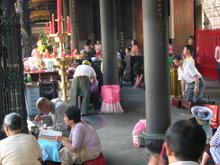


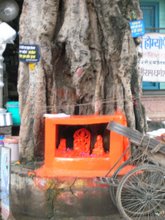




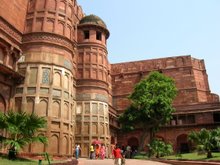

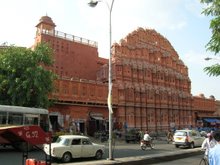
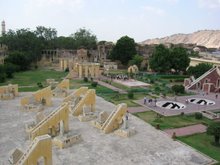

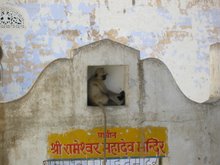
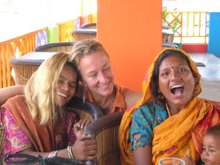
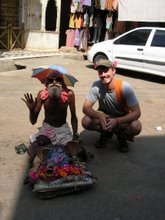

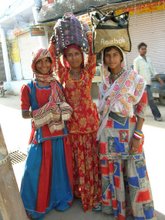

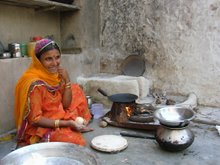
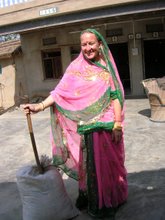
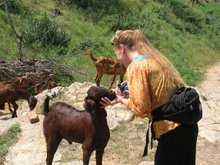
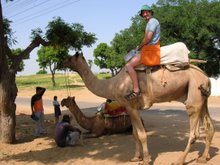
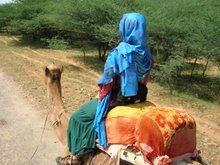

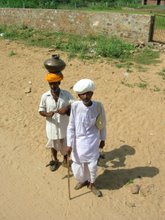

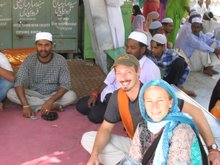
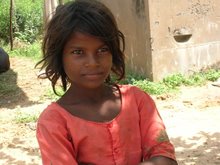
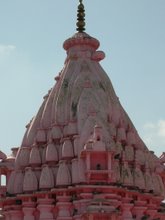
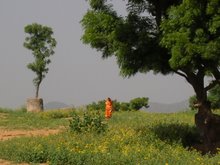
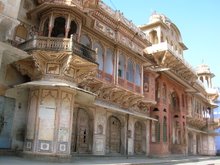
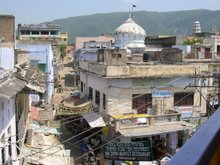
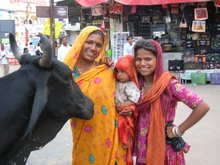

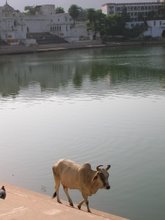
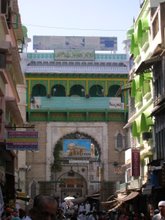
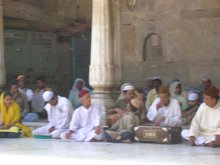
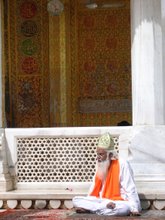
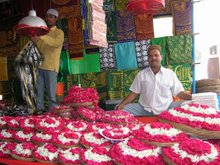

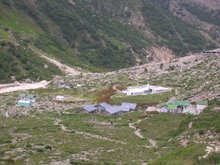
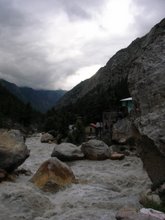
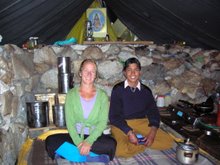

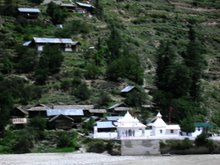
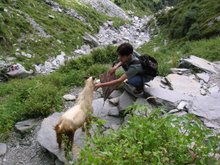

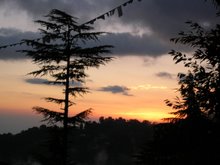

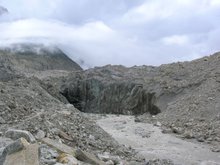
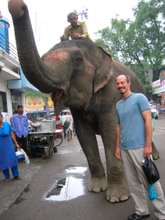
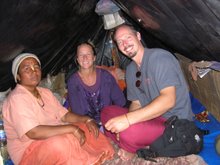
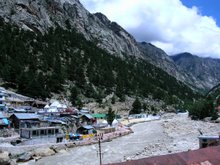
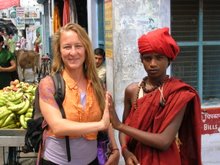
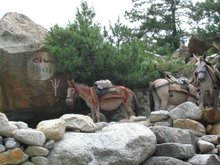





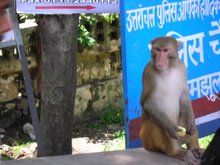
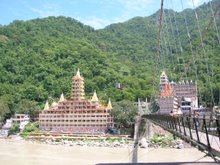
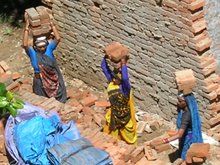
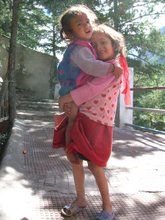
2 comments:
I am glad you not only experienced the yogic traditions of India and witnessed the corruption, complacency and tolerance of Indian people. City people are moving towards the Western ways of life and villagers are reaping the effects of pollution, trade, corruption and primitive idealogies.
Gayathri.
Unless a miracle, it will be centuries before India can rise to its true self, utilize its riches for the betterment of the country rather than just the upper class. Enough said:-)
Phoenix,
this is such a moving post. It is so painful to see the suffering and the cycles of suffering in India... because, just as you say, there rarely seems to be a way out. We were also so struck and so saddened by the effects of the caste system, and by seeing bright young spirits who would be destined to lives of hardship and poverty - without ever even a glimpse of change or mobility. It is inspiring to see that the brightness is still in their eyes, regardless... but I didn't ever feel comfortable enough to leave it at that. Bright eyes or not, surely no one wants their children (or themselves) to be hungry, dirty, illiterate, tired... etc. The larger inaction of the Indian people and government on these issues was also shocking, and struck me as the downside of Karma. As though this was the fate that these people had reaped for themselves, therefore they didn't require exceptional assistance. Our trip to India was certainly a new experience for me in that I began to appreciate the basic functionings of a civic government - roads, plumbing, electricity, etc. Overall, I found the whole thing to be both pleasantly and unpleasantly confusing. Every system has upsides and downsides, and unfortunately things were rarely as cut and dry as I would have liked. Thank you for sharing your observations. Love to you both,
Amey
Post a Comment